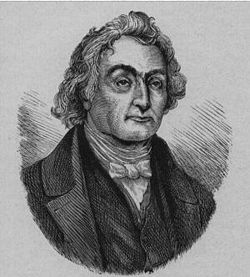“I will not be afraid, for I am of more value than many sparrows.”
So wrote Thomas Chalmers in 1817. More from him shortly…


“I will not be afraid, for I am of more value than many sparrows.”
So wrote Thomas Chalmers in 1817. More from him shortly…

Is his wording richly ambiguous, or dispiritingly sloppy?
R : Mea culpa. This is the close of a much, much longer sentence, so ought properly to have begun with an ellipsis. But I like it as it is.
Ellipsis or no, I still find it hard to tell whether he means
‘… I exceed the aggregated value of a complete sack [bushel, container-load, cubic furlong] of sparrows’
or
‘… there are many sparrows [Tom Sparrow, Dick Sparrow, Harry Sparrow] than whom I am more valuable’
Two sparrows were sold for a farthing in about 33 AD but presumably there’s been an inflationary drift by 1817 … and since Chalmers does not apparently dress like a denizen of Galilee, regional adjustments may need to be invoked as well.
He could, frankly, have been a good deal more specific in his self-evaluation.
A third interpretation could that he views himself as a sparrow; one of the more valuable ones.
Being concerned with Christianity with an economic bent, I’d wonder if he was referring to the worth of ‘the birds of the field’..who do not work?
“…Like every sparrow fallen. Like every grain of sand”
O.S.M.
Emma’s comment concerns me. The birds of the field are said neither to sow nor to reap, nor indeed to gather into barns (although last time it was really cold here, I noticed that a whole lot of birds had gathered into a barn to keep warm), but this surely doesn’t mean that they don’t necessarily work at all? They could be accountants, or stevedores, or piccolo-restorers – all lucrative and worthwhile jobs (well, OK, being a piccolo-restorer probably isn’t very lucrative, and being an accountant certainly might not be seen as worthwhile). I think this whole issue merits further deliberation.